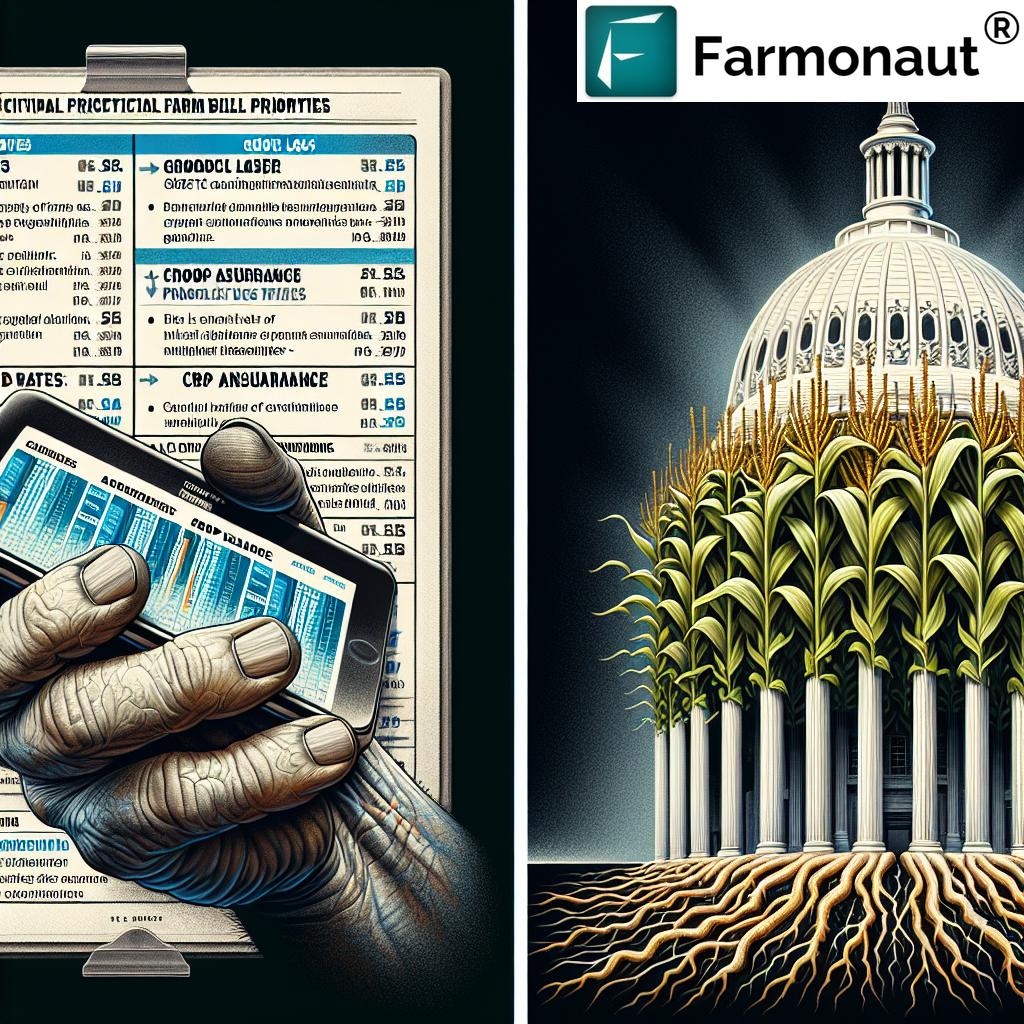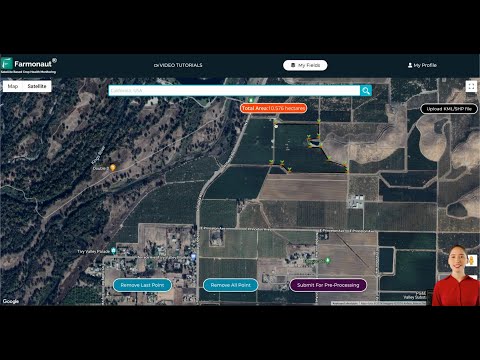Texas Corn Farming: 5 Critical Farm Bill Priorities Shaping Agricultural Policy and Food Security

“Texas corn farmers are focusing on 5 key priorities for the 2023 Farm Bill to shape agricultural policy.”
As we delve into the complex world of Texas corn farming, we find ourselves at a critical juncture where agricultural policy and farm bill priorities are taking center stage. The landscape of corn production in the Lone Star State is evolving, and with it, the challenges and opportunities that shape the future of our food security and national economy. In this comprehensive exploration, we’ll uncover the five key priorities for the 2023 Farm Bill that are set to redefine the agricultural landscape for Texas corn producers and beyond.
The Cornerstone of Texas Agriculture: Corn Production
Corn has long been a staple crop in Texas, playing a pivotal role in the state’s agricultural economy. With vast expanses of fertile land and a climate conducive to corn growth, Texas has established itself as a significant contributor to the national corn supply. However, the path to maintaining this status is fraught with challenges that require innovative solutions and strong policy support.
- Texas ranks among the top corn-producing states in the U.S.
- Corn production contributes billions of dollars to the state’s economy annually
- The crop supports numerous industries, from livestock feed to ethanol production
As we navigate the complexities of modern agriculture, it’s crucial to understand the intricate relationship between farm policy, market conditions, and the sustainability of our food production systems. This is where the Farm Bill comes into play, serving as a cornerstone for agricultural policy in the United States.
The Farm Bill: A Lifeline for Agricultural Policy
The Farm Bill is a comprehensive piece of legislation that is typically renewed every five years. It encompasses a wide range of agricultural and food programs, from crop insurance to nutrition assistance. For Texas corn farmers, the Farm Bill represents a crucial framework that can either bolster their operations or leave them vulnerable to market volatilities and environmental challenges.
As we approach the 2023 Farm Bill, Texas corn producers are rallying around five critical priorities that they believe will shape the future of agriculture in the state and across the nation. These priorities reflect the pressing need to balance production costs, environmental conservation, and farm profitability in an ever-changing global market.
5 Critical Farm Bill Priorities for Texas Corn Farmers
Let’s dive into the five key priorities that Texas corn farmers are focusing on for the upcoming Farm Bill:
- Increased Price Loss Coverage (PLC) Reference Prices
- Protection of Crop Insurance Programs
- Enhanced Conservation Programs
- Improved Farm Loan Rates
- Strengthened Water Rights and Infrastructure
Each of these priorities addresses a critical aspect of corn farming in Texas, from financial security to resource management. Let’s examine them in detail to understand their significance and potential impact on the agricultural landscape.
1. Increased Price Loss Coverage (PLC) Reference Prices
Price Loss Coverage is a crucial safety net for farmers when market prices fall below a certain threshold. Texas corn producers are advocating for an increase in PLC reference prices to better reflect the current cost of production and market realities.
- Current PLC reference prices are outdated and do not account for increased production costs
- Higher reference prices would provide a more effective safety net for farmers during market downturns
- This change could help stabilize farm income and reduce reliance on ad hoc disaster payments
By adjusting PLC reference prices, the Farm Bill can ensure that corn farmers have a more robust financial cushion against market volatility, allowing them to invest in sustainable practices and maintain their operations even in challenging times.
2. Protection of Crop Insurance Programs
Crop insurance is a cornerstone of risk management for Texas corn farmers. The upcoming Farm Bill must maintain and strengthen these programs to provide comprehensive coverage against yield losses and revenue shortfalls.
Key aspects of crop insurance protection include:
- Preserving premium subsidies to keep insurance affordable for farmers
- Expanding coverage options to address emerging risks such as climate change
- Streamlining the claims process to ensure timely payouts during crises
A robust crop insurance program is essential for maintaining the stability of corn production in Texas, especially as weather patterns become more unpredictable and extreme events more frequent.
3. Enhanced Conservation Programs
Texas corn farmers recognize the importance of environmental stewardship and are calling for enhanced conservation programs in the 2023 Farm Bill. These programs should incentivize sustainable farming practices while acknowledging the economic realities of agricultural production.
- Increased funding for voluntary conservation initiatives
- Support for precision agriculture technologies that reduce environmental impact
- Recognition of farmers’ efforts in carbon sequestration and soil health improvement
By investing in conservation, the Farm Bill can help Texas corn producers become more resilient to environmental challenges while contributing to broader sustainability goals.
4. Improved Farm Loan Rates
Access to capital is crucial for corn farmers to invest in their operations and adopt new technologies. The 2023 Farm Bill should address the need for improved farm loan rates and terms to support the long-term viability of corn production in Texas.
- Increasing loan limits to reflect the rising costs of farm equipment and inputs
- Offering more flexible repayment terms to accommodate the cyclical nature of agriculture
- Expanding eligibility criteria to support young and beginning farmers
By enhancing farm loan programs, the Farm Bill can ensure that Texas corn producers have the financial resources they need to adapt and thrive in a changing agricultural landscape.
5. Strengthened Water Rights and Infrastructure
Water is a precious resource in Texas, and corn production depends heavily on reliable access to irrigation. The 2023 Farm Bill must address water rights and invest in water infrastructure to support sustainable corn farming practices.
- Protecting farmers’ water rights in the face of increasing urban demand
- Funding for modernizing irrigation systems to improve water use efficiency
- Support for research into drought-resistant corn varieties and water conservation techniques
By prioritizing water management, the Farm Bill can help ensure the long-term sustainability of corn production in Texas, even as climate change puts pressure on water resources.

“The 2023 Farm Bill priorities aim to balance production costs, environmental conservation, and profitability for corn farmers in Texas.”
The Impact of Farm Bill Priorities on Texas Corn Production
To better understand how these Farm Bill priorities could affect Texas corn farming, let’s examine a detailed table that outlines the current status, proposed changes, potential impacts, and how Farmonaut’s technology can address related challenges:
| Priority | Current Status | Proposed Changes | Potential Impact on Texas Corn Farmers | Farmonaut Solution |
|---|---|---|---|---|
| Increased PLC Reference Prices | Outdated prices not reflecting current production costs | Raise reference prices to match current market realities | Improved financial stability and risk management | AI-driven market analysis to help farmers make informed decisions |
| Protection of Crop Insurance | Existing programs with limited coverage for new risks | Expand coverage and maintain premium subsidies | Enhanced risk mitigation and financial security | Satellite-based crop monitoring for accurate yield predictions and risk assessment |
| Enhanced Conservation Programs | Limited incentives for sustainable practices | Increase funding and support for conservation initiatives | Improved soil health and long-term sustainability | Precision agriculture tools for optimized resource use and conservation |
| Improved Farm Loan Rates | Loan limits not reflecting current farm costs | Increase loan limits and offer flexible terms | Better access to capital for investments and innovations | Data-driven insights to support loan applications and financial planning |
| Strengthened Water Rights and Infrastructure | Aging infrastructure and competing water demands | Invest in water infrastructure and protect farmers’ rights | Secure water access and improved irrigation efficiency | Advanced water management tools and satellite-based soil moisture monitoring |
This table illustrates how each priority area in the Farm Bill could significantly impact Texas corn farmers and how technological solutions, such as those offered by Farmonaut, can play a crucial role in addressing these challenges.
The Role of Technology in Addressing Farm Bill Challenges
As we navigate the complexities of agricultural policy and the Farm Bill priorities, it’s clear that technology will play a pivotal role in helping Texas corn farmers adapt and thrive. Farmonaut’s advanced agritech solutions are particularly well-suited to address many of the challenges outlined in the Farm Bill priorities.
Satellite-Based Crop Health Monitoring: Farmonaut’s satellite imagery technology provides real-time insights into crop health, allowing farmers to make data-driven decisions about irrigation, fertilizer use, and pest management. This aligns with the conservation goals of the Farm Bill by promoting efficient resource use.
AI-Powered Advisory Systems: The Jeevn AI system offers personalized farm management advice, helping corn producers optimize their operations in line with Farm Bill objectives. This technology can assist farmers in implementing sustainable practices while maintaining profitability.
Blockchain-Based Traceability: As food security becomes increasingly important, Farmonaut’s blockchain solutions can help Texas corn farmers demonstrate compliance with Farm Bill regulations and meet consumer demands for transparency.
By leveraging these technologies, Texas corn farmers can not only meet the challenges outlined in the Farm Bill but also position themselves at the forefront of agricultural innovation.
The Broader Impact: Food Security and National Economy
The Farm Bill priorities advocated by Texas corn farmers extend far beyond the state’s borders. They have significant implications for national food security and the overall economy:
- Stable Food Supply: By supporting corn producers, the Farm Bill helps ensure a consistent and affordable supply of this staple crop for various industries, from food processing to livestock feed.
- Economic Ripple Effects: A thriving corn industry in Texas contributes to job creation and economic stability in rural communities across the state.
- Global Competitiveness: Strong domestic policy support enables U.S. corn farmers to remain competitive in international markets, bolstering the country’s agricultural exports.
- Environmental Stewardship: Conservation programs incentivized by the Farm Bill contribute to broader environmental goals, such as reducing greenhouse gas emissions and improving water quality.
As we consider these far-reaching impacts, it becomes clear that the success of Texas corn farmers is inextricably linked to the well-being of the nation as a whole.
Looking Ahead: The Future of Texas Corn Farming
As we look to the future of corn production in Texas, several key trends and challenges emerge:
- Climate Resilience: Adapting to changing weather patterns and increasing frequency of extreme events will be crucial for long-term sustainability.
- Technological Integration: Embracing precision agriculture and data-driven farming practices will be essential for maintaining competitiveness.
- Market Diversification: Exploring new markets and value-added products will help corn farmers hedge against market volatilities.
- Generational Transition: Supporting young farmers and facilitating the transfer of knowledge and resources will be vital for the industry’s continuity.
The 2023 Farm Bill, with its focus on the five critical priorities we’ve discussed, has the potential to set the stage for a resilient and prosperous future for Texas corn farming. By addressing these priorities, policymakers can create an environment that supports innovation, sustainability, and economic stability in the agricultural sector.
Conclusion: A Call to Action for Sustainable Corn Production
As we’ve explored the five critical Farm Bill priorities shaping agricultural policy and food security in Texas, it’s clear that the future of corn farming in the Lone Star State stands at a crossroads. The decisions made in the upcoming Farm Bill will have far-reaching consequences for farmers, consumers, and the environment.
We call upon policymakers, agricultural stakeholders, and the broader public to recognize the importance of these priorities and support policies that will ensure a sustainable and secure future for Texas corn production. By investing in our farmers, we invest in our food security, our economy, and our environment.
For corn producers looking to navigate these complex challenges, embracing technological solutions like those offered by Farmonaut can provide a competitive edge. From satellite-based crop monitoring to AI-driven advisory systems, these tools can help farmers adapt to changing policies and market conditions while promoting sustainable practices.
As we move forward, let’s work together to create a Farm Bill that not only addresses the immediate needs of Texas corn farmers but also lays the groundwork for a resilient and prosperous agricultural future for generations to come.
FAQ Section
Q: What are the main challenges facing Texas corn farmers today?
A: Texas corn farmers face several challenges, including volatile market prices, increasing production costs, water scarcity, and adapting to climate change. The Farm Bill priorities aim to address these issues through policy support and resource allocation.
Q: How does the Farm Bill impact food security?
A: The Farm Bill plays a crucial role in ensuring food security by providing support to farmers, funding nutrition programs, and promoting sustainable agricultural practices. It helps maintain a stable and affordable food supply for the nation.
Q: What role does technology play in modern corn farming?
A: Technology is increasingly important in corn farming, offering solutions for precision agriculture, crop monitoring, and resource management. Tools like Farmonaut’s satellite-based systems help farmers make data-driven decisions to optimize yields and reduce environmental impact.
Q: How can consumers support Texas corn farmers?
A: Consumers can support Texas corn farmers by purchasing products made with locally grown corn, advocating for supportive agricultural policies, and recognizing the importance of corn production in the food supply chain.
Q: What is the economic impact of corn farming in Texas?
A: Corn farming is a significant contributor to Texas’s agricultural economy, providing jobs, supporting related industries, and contributing billions of dollars to the state’s GDP annually.
For more information on how Farmonaut can support your farming operations, visit our website or explore our mobile apps:
For developers interested in integrating our technology, check out our API and API Developer Docs.






